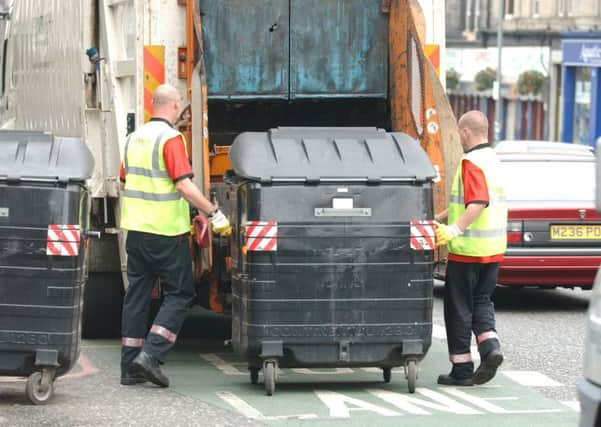Council tax to be replaced with ‘fairer’ alternative


A new “progressive” alternative system is likely to be introduced, with options based on income, property and land proposed in a keynote report launched by local government minister Marco Biagi.
The revamped property system based on up-to-date house values, and taking income levels into account, would be “much fairer” than the council tax, the Commission on Local Tax Reforms finds.
Advertisement
Hide AdAdvertisement
Hide AdIt said it would see “those in lower value homes pay less, but the tax due on higher value homes increase”.
The SNP government and opposition parties are now being challenged to set out their favoured option going into next year’s Holyrood election, but Mr Biagi, who co-chaired the commission, made it clear yesterday that the status quo cannot go on.
He said: “From the outset, having agreed that the present system is unfair and in need of reform, we have worked together in a spirit of consensus to understand the alternatives available to us and to put to the people of Scotland a report that clearly sets out the steps that can be taken to deliver change.
“It is now up to politicians from across the political spectrum to take the report and to use it to put to the Scottish people alternatives that are fair, workable and empowering for local communities.”
Council tax has been frozen for the past eight years. But this freeze has been fully funded by the Scottish Government and has cost about £2.5 billion, which is now widely seen as being unsustainable.
The tax itself, which accounts for about 12 per cent of councils’ spending, is based on values from 1991 and is viewed as being completely detached from the current ability of people to pay.
The Commission looked at three alternatives: a property tax, a land tax, and a local income tax.
Its report appears to indicate that a property tax structured in a way that takes account of both income and needs-based reliefs could be the fairest way forward.
Advertisement
Hide AdAdvertisement
Hide AdIn its conclusions, the report said: “The predominant view of the Commission is that local government’s tax base should, if it could be proved feasible, be broadened to include income. Income is widely perceived to be a fairer basis on which to levy a tax, although a locally variable income tax presents substantial administrative challenges.”
• READ MILE: Link to article
The land value tax scheme would be based on the land alone, with no account taken of the buildings on it. There were concerns this could be difficult to implement and would mean higher tax bills in valuable city locations and lower ones in rural areas.
The SNP wanted to introduce a local income tax after being elected in 2007, but the proposal was dropped by the then minority government after failing to win a consensus from other parties at Holyrood.
Couples with children would end up paying a higher proportion of their “equivalised” net income than those who are childless, the report said, while couples will pay less than a single person with the same income. “These factors challenge wither or not a local income tax is “equitable” by our measure,” it stated.
David O’Neill, president of local authority umbrella group Cosla and co-chairman of the Commission said: “We have conducted more in-depth analysis of potential alternatives to the present system of council tax than ever before, with the aim of promoting understanding and stimulating debate among the public and politicians on the future of local taxation.
“As a result of our work, there is now a real prospect that Scotland’s politicians are on the cusp of delivering lasting and meaningful reform. The opportunity to deliver lasting reform is one that must not be missed.”
The commission was set up jointly by the Scottish Government and Cosla to look at “fairer alternatives” to council tax, which has been frozen since 2007.
The current system raises around £2 billion to help pay for local government expenditure such as refuse and recycling collection, education, roads maintenance and leisure facilities.
Advertisement
Hide AdAdvertisement
Hide AdThe Commission analysed the impact on households of the use of alternative systems to raise a similar amount.
Councillor Kevin Keenan, finance spokesman with Cosla, said the report emphasises the need for councils to be empowered through a “truly local package of taxes”.
Liberal Democrat leader Willie Rennie said: “This report sets out plenty of alternatives for the reform of local government finance, but after eight years people might have expected more from a government that said it was committed to reforming the council tax system.
“By setting out the choices we have, clearly the report moves the debate along, but ultimately people may think that this was a missed opportunity to build cross-party consensus.
“We will have to consider very seriously how the next parliament, elected in May, can make the progress that the SNP have failed on for eight years.”
The Scottish Conservatives did not take part in the Commission’s study, instead holding their own.
Party leader Ruth Davidson said: “The Scottish Conservatives decided to set up an independent commission into fair and competitive taxation last year, headed by Sir Iain McMillan, to study these issues.
“Once that has reported, we will set out our own plans on local taxation.”
Advertisement
Hide AdAdvertisement
Hide AdThe Greens welcomed the report, which described a land value tax – a long-standing policy of the party – as “promising”.
Andy Wightman of the Greens said the party will study the report and bring forward proposals in its manifesto for the 2016 Holyrood elections.